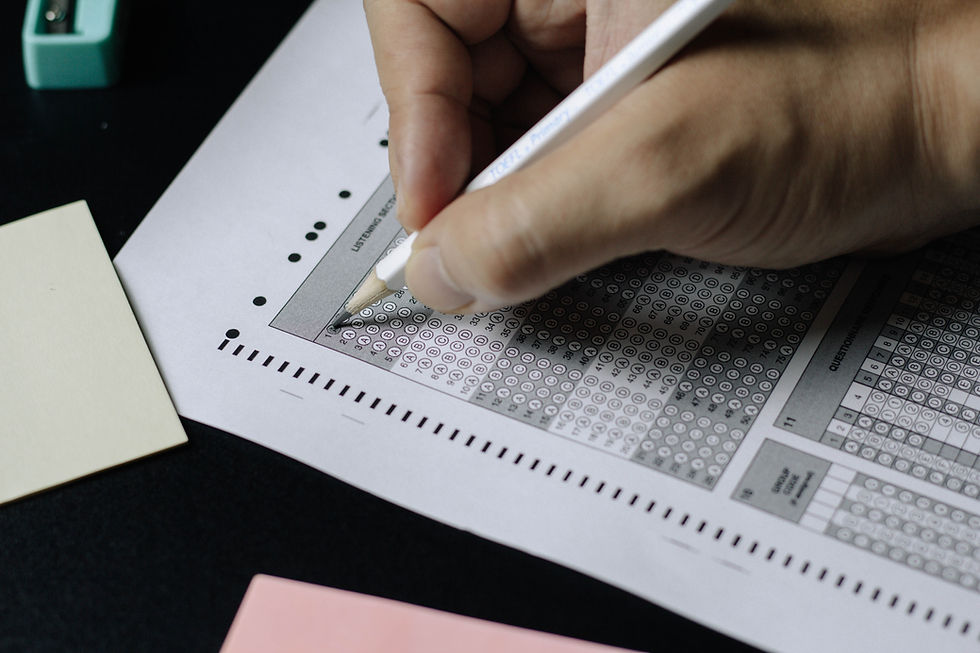How to Take Notes Like a Pro
- Julia Galindo
- Jul 26, 2023
- 4 min read
Let my many years as a student save you some time!
You’re busy. Beyond busy. You have classes, clubs, performances—maybe even a sport or two—and you’re expected to juggle it all. One of the most daunting tasks can be simply covering all of the reading that is assigned to you. This is where I come in with some solid advice that I learned the hard way—that is, after years of taking notes inefficiently.
Here are my top 3 tips for taking good notes:
Tip #1
Leave yourself breadcrumbs.
Don’t assume you will remember everything that you read! It’s likely you’ll be doing lots of different activities between reading the material and writing about it. Do yourself a favor and note down the important stuff while you read. That way, when you go to write the paper, you won’t be starting at square one. Experiment with different systems for note-taking to see what works best for you.
Systems I’ve tried:
- Writing on Post-Its that you stick to the exact pages in the book where something notable has happened
- Hand-writing notes into a notebook page (pro tip 1: Always note down the page number from your source to save yourself time having to search later on; pro tip 2: If you’re completing the reading over multiple days, skip ahead a few pages in your notebook before you write anything else so that way your notes on one source are not scattered throughout the notebook)
- Opening up a Google doc and typing notes into it (pro tip: Be wary of the temptation to copy and paste directly from the reading; you’ll process the material much better if you type it out, and especially if you put it into your own words)
Tip #2
Be an “Information Extractor.”
I got this term from my friend Bill Rankin many years ago when we were both grad students. We were chatting at a party when I started complaining about how long it was taking me to get through all of the material I needed to read before I could begin writing my dissertation (I was really fun at parties). “Well, how are you reading?” asked Bill. I looked at him blankly (um, by sounding out the words?) until he explained that he used to have this problem, until he started thinking of himself as an Information Extractor.
What IS an Information Extractor? It’s someone who sits down to process the material without necessarily reading it word for word. They spend just enough time with the source to get what they need and then they move on. The idea that I didn’t have to read each source from start to finish, and take equally detailed notes no matter how likely (or unlikely) I was to later use that source, was a revelation to me! Let it be one to you too.
Here's how to do it: Review the assignment your professor has given you before you start reading. How are you meant to use this source? What are you supposed to get out of it? For example, are you supposed to critique it? Is there an element of the content you’re supposed to memorize? Are you meant to find connections between this reading and something you discussed in class? The idea is to know exactly what you’re looking for and then go in and get it! By the way, if you can’t tell what you’re supposed to get out of a reading from the way an assignment is written, or if there is no assignment language for you to refer to, this is a great question to ask your teacher.
Bill is now a tenured professor at Yale, so I would say the whole Information Extractor thing works pretty well!
Tip #3
Begin the process of translation.
When you write an essay, you’ll need to put the author’s words into your own phrasing. It’s easier to write the final paper if you’ve already started this process when you first took your notes. Putting the material into your own words will also ensure that you’ve processed it more deeply, which makes it easier to remember over time.
Of course, sometimes you’ll need to take lots of notes, and paraphrasing everything can become time-consuming. If you are taking down direct quotes, or using an author’s words almost exactly, develop a fail-proof system to note whose words are whose. This will ensure you don’t accidentally plagiarize an author because you misinterpreted your notes. For example,
- “I put direct quotes in scare quotes followed by the page number so I don’t have to track it down later.” p. 2
- //If I’m basically using the author’s words but not using direct quotes because I want to save time, I mark the text with two dashes.// This lets me know I need to change these words if I decide to use them in my writing. However, it also lets me move faster than I would if I were taking the time to paraphrase everything or copy an exact quote verbatim.
I hope these tips were helpful.
Please let me know in the comments if you have other ideas or strategies that have worked well for you when taking notes on readings.
May you enjoy your reading, may you not be assigned too much of it, and may you use your time strategically and efficiently!



